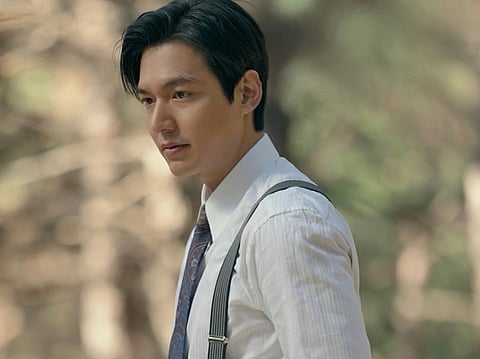Lee Min-ho turns 38: Why Pachinko was his boldest and best acting risk in a career marked by toxic roles
From chaebol playboys to complex roles: Lee Min-ho's journey

Lee Min-ho has had a career full of unusual choices, ones that skyrocketed him to fame, but also deserve some dissection years down the line. He established himself with the curly-haired, brattish Jun-pyo in Boys Over Flowers—a role even he’s cringed over in hindsight. And yet, it refuses to leave Netflix, with fans still dreaming of a Season 2.
He has The Heirs in his pocket too, another sensational hit where he played another toxic lead, just with better hair. These are the roles he’s most remembered for—loud, toxic, hyper-romanticised leads. But buried in his filmography are quieter, more nuanced gems. There’s Personal Taste, where he played a soft-spoken architect opposite Son Ye-jin, and Legend of the Blue Sea, a whimsical love story between a conman and a mermaid. These showed flashes of depth, but often get buried under the weight of his more meme-able dramas.
But, when he does confusing big-budget shows like King: The Eternal Monarch, and the abysmal When The Stars Gossip, his earlier choices tend to just fuse together. So, if you want to see what Min-ho is truly capable of, revisit the shows no one talks about anymore. You just might be surprised.
And that’s where Pachinko, is a revelation.
Adapted from Min Jin Lee’s acclaimed novel, Pachinko is not a K-drama in the conventional sense. It’s sweeping, literary, and brutal in its realism. The story spans four generations of a Korean family, from colonized Korea to war-torn Japan, to eventual migration to the U.S.
Min-ho plays Koh Hansu, a wealthy outsider from Osaka with murky ties and a sharp suit, who becomes entangled in the life of young Sunja (Kim Min-ha), a quiet, suppressed woman helping her mother run a boarding house. Hansu is clipped in his speech, enigmatic in his presence, and disarming in his intensity. From the moment he appears, you don’t quite know what to make of him—but neither does Sunja, and that’s what runs through the story. And this is where Min-ho is so different from all other characters that he has played—where he has been outright questionable, toxic even—and still propped as the lead who ‘wins’ the girl in the end.
But then with Pachinko, he turns that around. Min-ho isn’t seeking your approval with Han-su. He disappears into this grey, thorny, frustrating character, and you still watch. He oscillates between cold—even cruel with his words at one point—and yet, somehow, in a very twisted way—still loves the woman, whose life he uprooted in his passion. Min-ho appears to have followed the character details very clearly from the book and brings him to the screen, in his own unusual twist, which isn’t unwelcome at all. You can feel frustrated with Han-su; you might detest him at points too, like Sunja’s own son. Han-su and Sunja’s relationship reverberate through the story—even when he is far removed from her life, he still looks for ways to help her. Min-ho leaves behind the brashness of the K-Drama chaebols and shows us a new mature side to his acting—and what he is actually capable of. And he doesn’t need to dissolve into tears or be melodramatic—every move, detail and his eyes depict his own internal conflict.
Pachinko proves what Min-ho is capable of when he isn’t playing to type. It’s arguably his finest work yet. And it makes you wonder: if this is what he can do when handed a role with moral ambiguity and real stakes, why did we ever settle for the chaebol playboys to begin with?
Sign up for the Daily Briefing
Get the latest news and updates straight to your inbox


